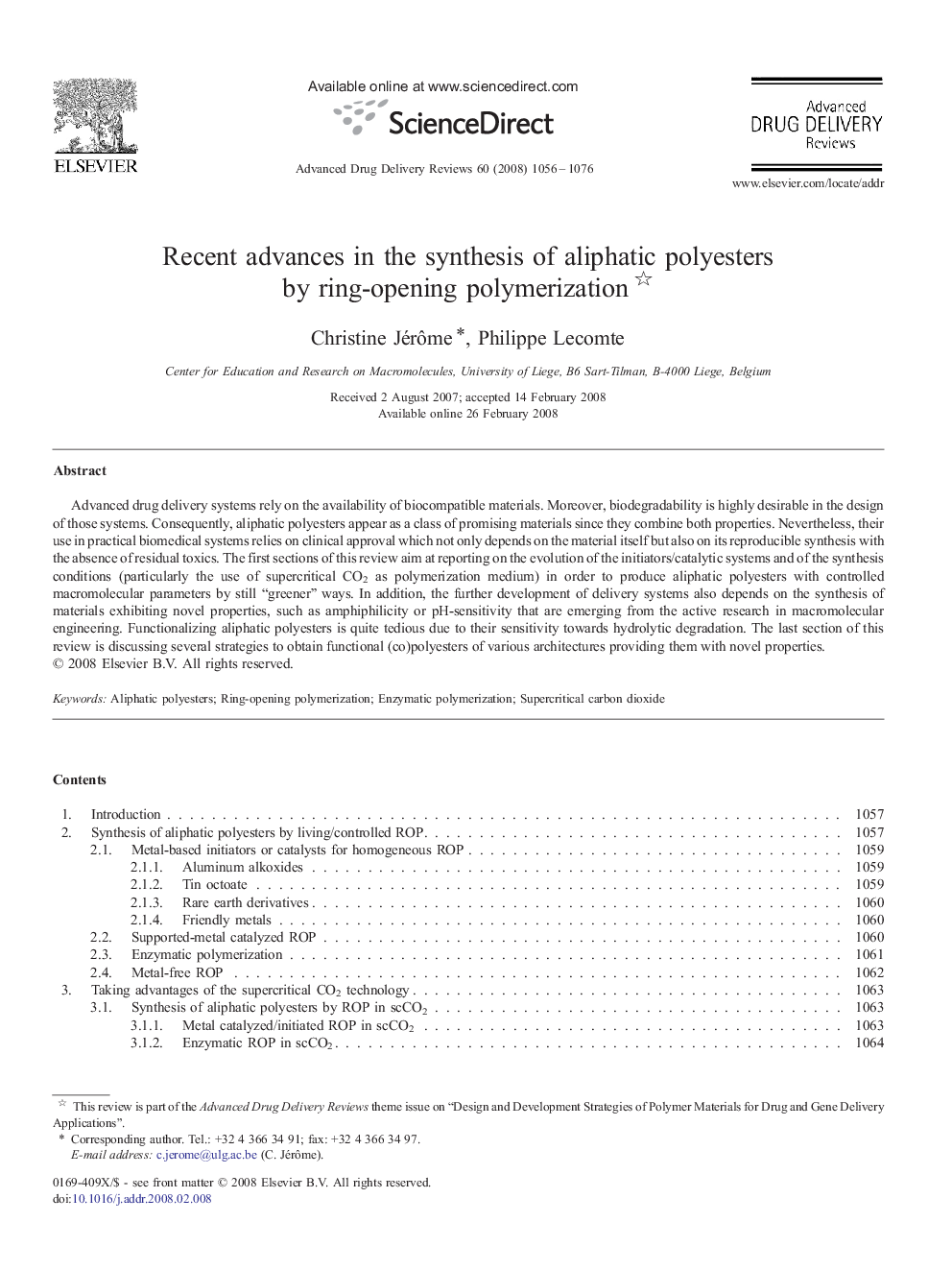| Article ID | Journal | Published Year | Pages | File Type |
|---|---|---|---|---|
| 2071931 | Advanced Drug Delivery Reviews | 2008 | 21 Pages |
Advanced drug delivery systems rely on the availability of biocompatible materials. Moreover, biodegradability is highly desirable in the design of those systems. Consequently, aliphatic polyesters appear as a class of promising materials since they combine both properties. Nevertheless, their use in practical biomedical systems relies on clinical approval which not only depends on the material itself but also on its reproducible synthesis with the absence of residual toxics. The first sections of this review aim at reporting on the evolution of the initiators/catalytic systems and of the synthesis conditions (particularly the use of supercritical CO2 as polymerization medium) in order to produce aliphatic polyesters with controlled macromolecular parameters by still “greener” ways. In addition, the further development of delivery systems also depends on the synthesis of materials exhibiting novel properties, such as amphiphilicity or pH-sensitivity that are emerging from the active research in macromolecular engineering. Functionalizing aliphatic polyesters is quite tedious due to their sensitivity towards hydrolytic degradation. The last section of this review is discussing several strategies to obtain functional (co)polyesters of various architectures providing them with novel properties.
